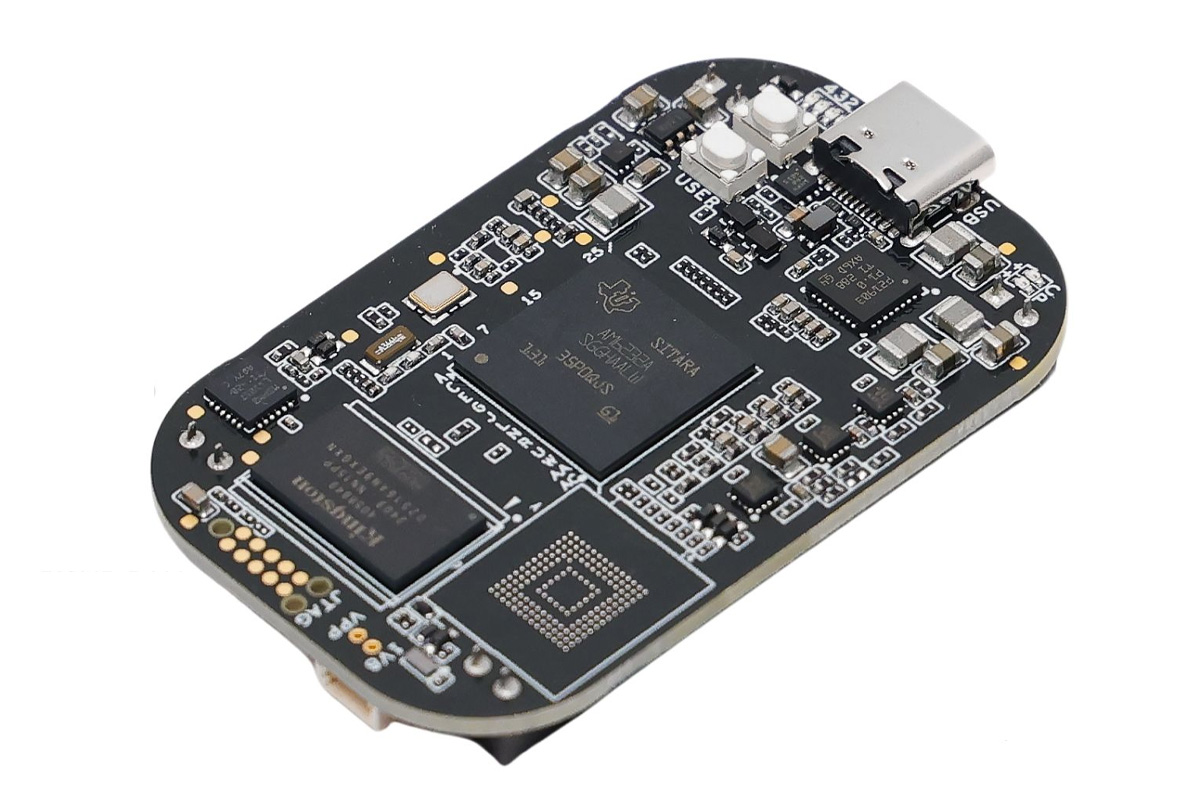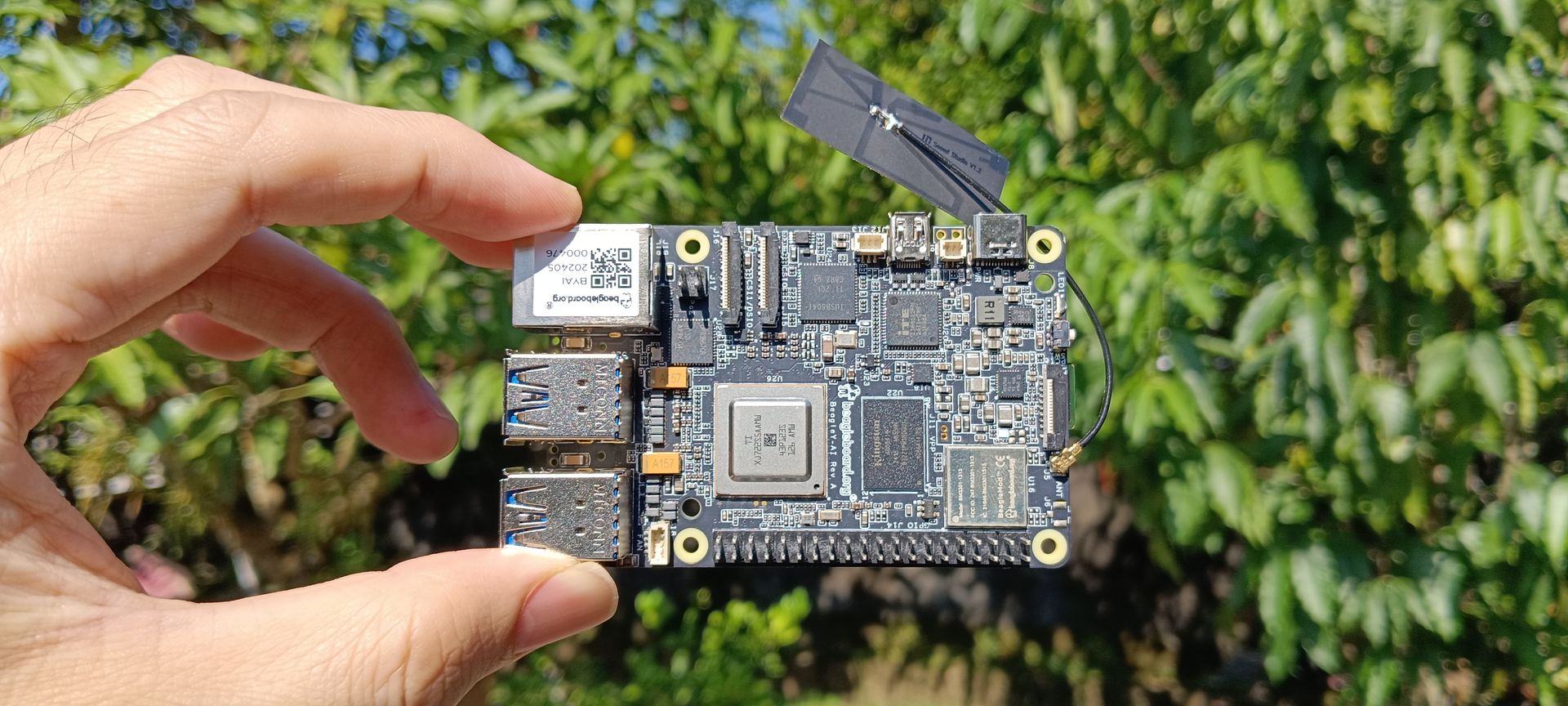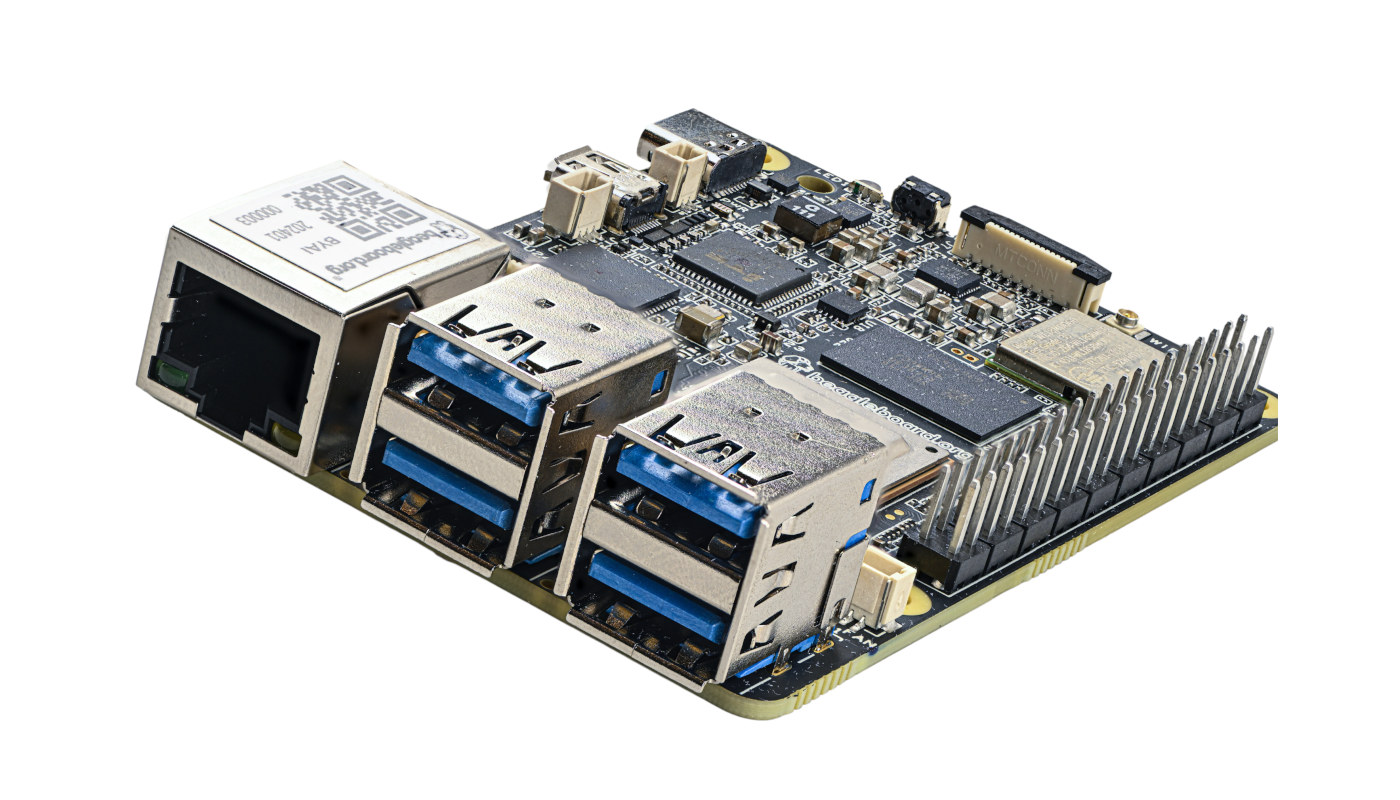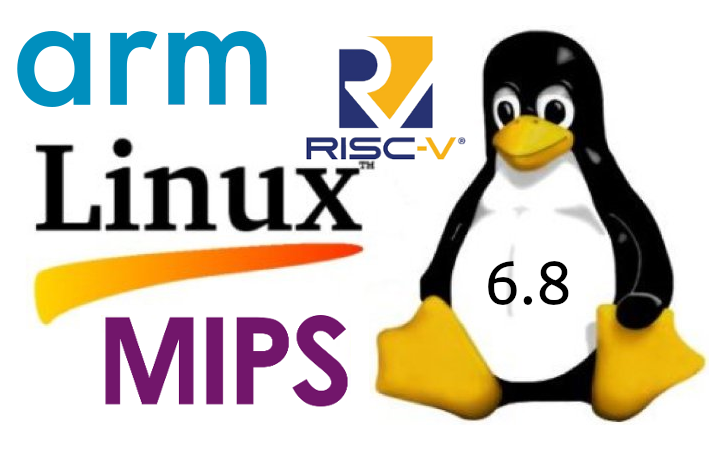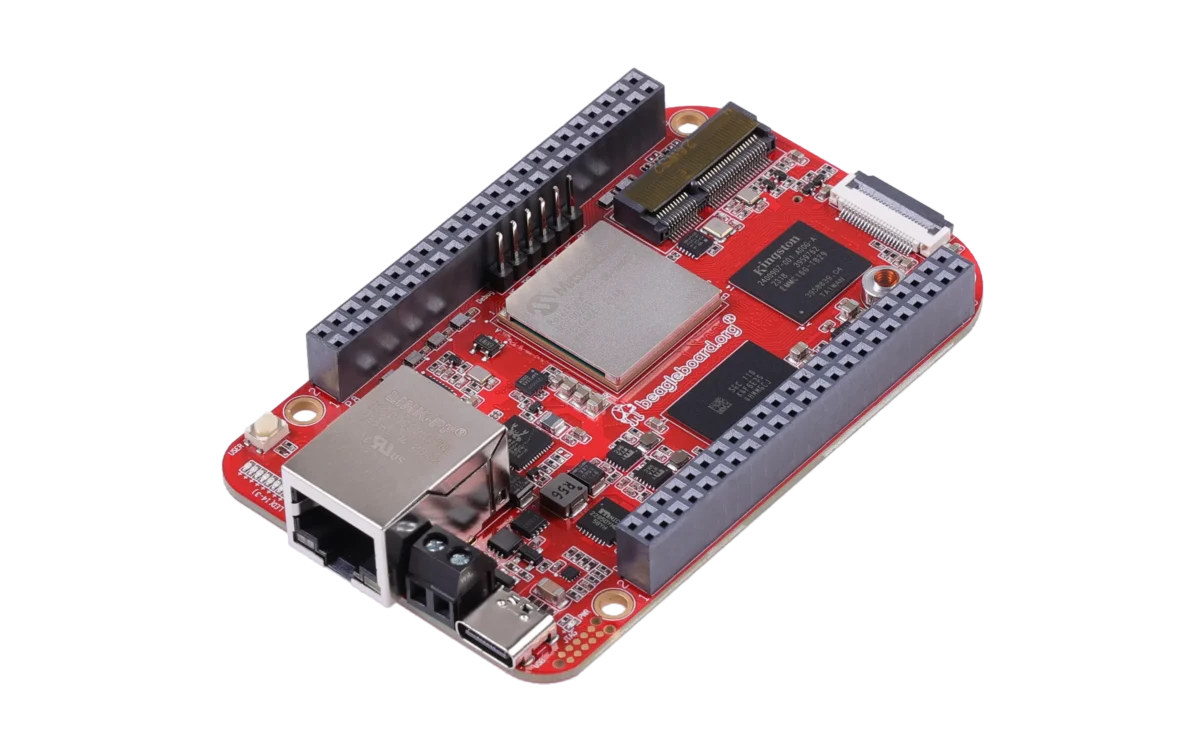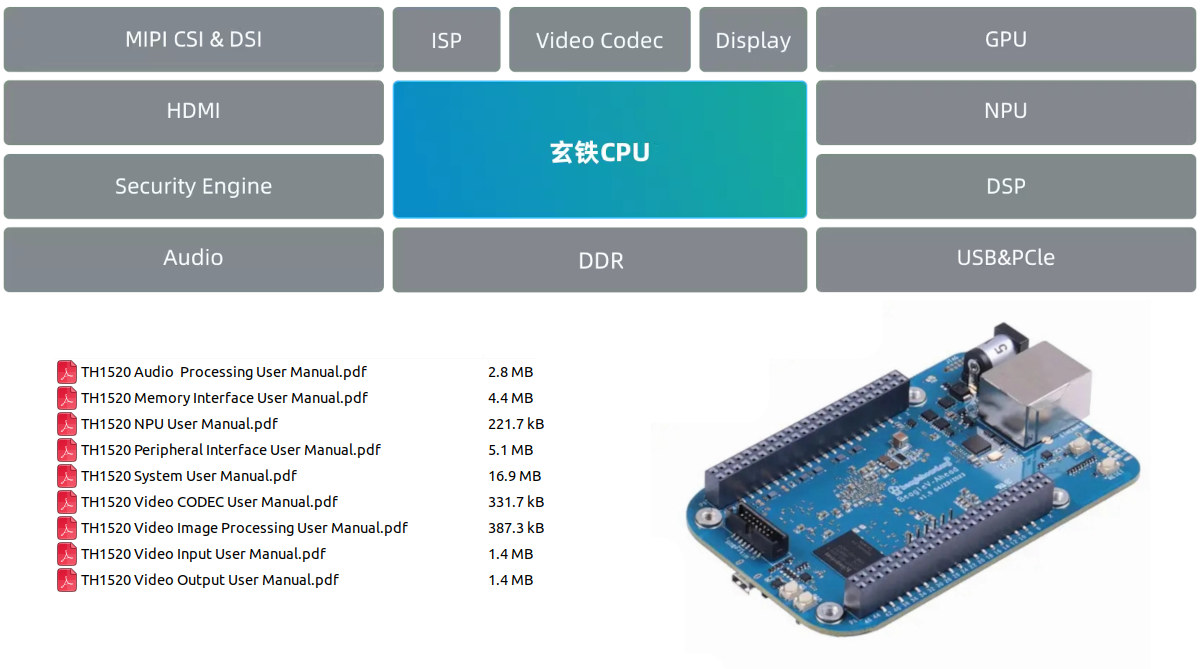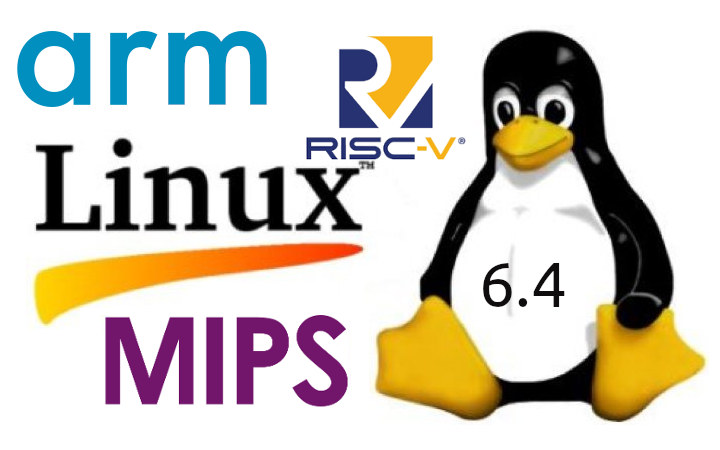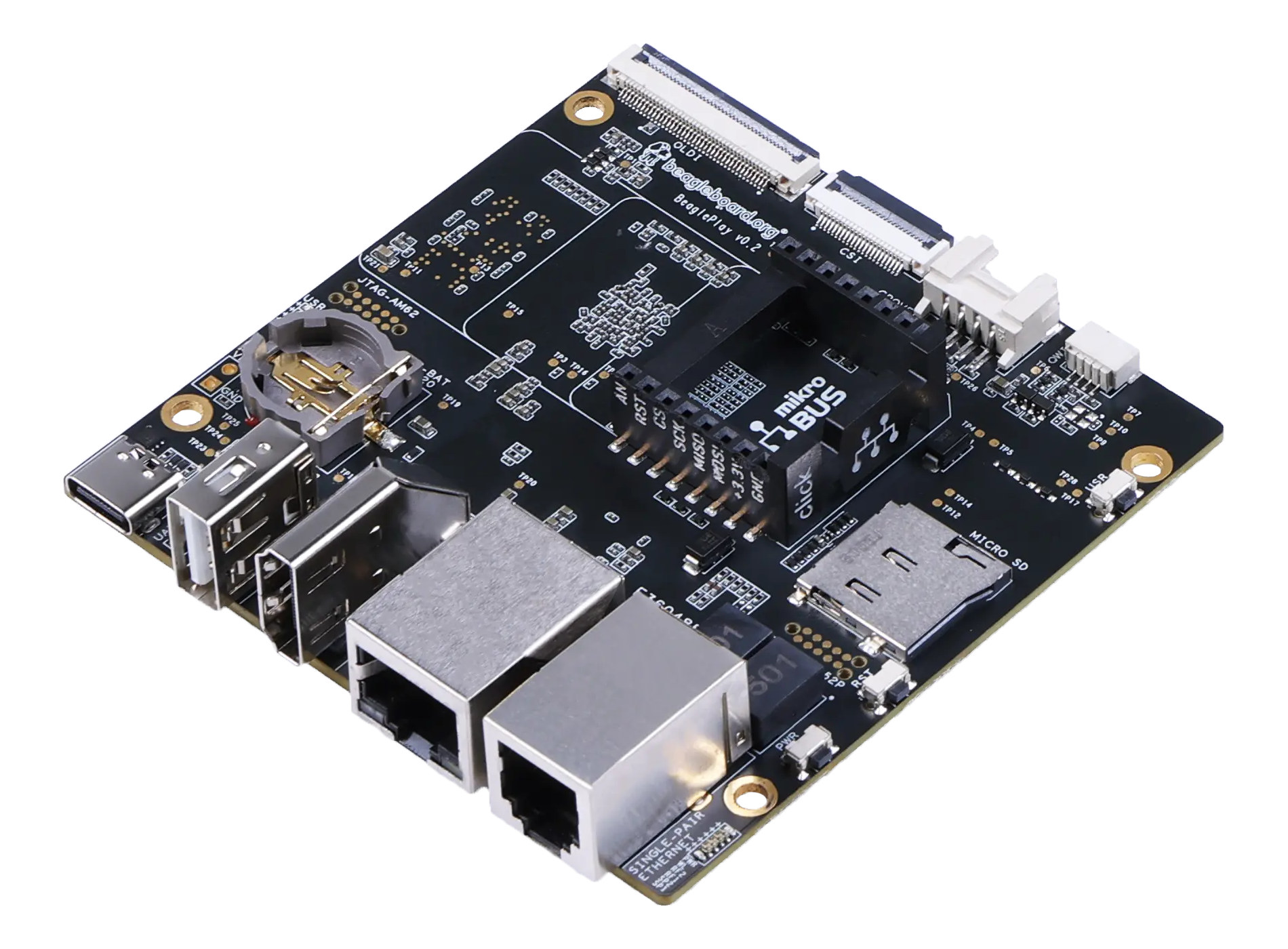Beagleboard has recently announced the PocketBeagle 2, a single board computer (SBC) built around TI’s AM6232 dual-core Cortex-A53 and Cortex-M7 SoC and an additional MSPM0L1105 Arm Cortex-M0+ microcontroller for ADC pins and board ID storage. Designed for developers, students, and hobbyists, it’s a direct upgrade from the previous generation PocketBeagle which the company released in 2017. The new board comes with a faster dual-core 64-bit CPU (compared to a single-core CPU), faster memory (DDR4), improved power management (USB-C + LiPo charger), and easier debugging (UART + JTAG) for faster development. Additionally, it comes with four user-controllable LEDs, a power LED, and a battery-charging LED for better status indication. Unlike the first generation, this new version comes with pre-soldered GPIO headers with the same compact (55 x 35mm) form factor making it suitable for embedded applications and IoT projects. PocketBeagle 2 single-board computer specifications Main SoC – Texas Instruments AM6232 CPU […]
BeagleY-AI SBC review with Debian 12, TensorFlow Lite, other AI demos
Today I’ll be reviewing the BeagleY-AI open-source single-board computer (SBC) developed by BeagleBoard.org for artificial intelligence applications. It is powered by a Texas Instruments AM67A quad-core Cortex-A53 processor running at 1.4 GHz along with an ARM Cortex-R5F processor running at 800 MHz for handling general tasks and low-latency I/O operations. The SoC is also equipped with two C7x DSP units and a Matrix Multiply Accelerator (MMA) to enhance AI performance and accelerate deep learning tasks. Each C7x DSP delivers 2 TOPS, offering a total of up to 4 TOPS. Additionally, it includes an Imagination BXS-4-64 graphics accelerator that provides 50 GFlops of performance for multimedia tasks such as video encoding and decoding. For more information, refer to our previous article on CNX Software or visit the manufacturer’s website. BeagleY-AI unboxing The BeagleY-AI board was shipped from India in a glossy-coated, printed corrugated cardboard box. Inside, the board is protected by […]
BeagleY-AI SBC features TI AM67A vision processor with 4 TOPS AI accelerators
The BeagleBoard.org Foundation’s BeagleY-AI is an open-source hardware, credit card-sized SBC powered by a Texas Instruments AM67A quad-core Cortex-A53 vision processor with various programmable blocks capable of delivering up to 4 TOPS for AI algorithms. The board ships with 4GB RAM, relies on a microSD card slot for storage and OS booting, implements gigabit Ethernet, WiFi 6, and Bluetooth 5.4 connectivity, and can drive up to three displays via micro HDMI, OLDI (LVDS), and MIPI DSI interfaces. The BeagleY-AI also comes with two MIPI CSI camera interfaces, four USB 3.0 ports, a USB Type-C port, and a 40-pin GPIO header for expansion. We can also see a 16-pin PCIe FPC connector that looks somewhat similar to the 20-pin PCIe connector on the Raspberry Pi 5 but officially supports PCIe Gen3 x1. BeagleY-AI specifications: SoC – Texas Instruments AM67A (J722S) “vision processor” CPU Quad-core 64-bit Arm Cortex-A53 processor at 1.4GHz Arm […]
Linux 6.8 release – Notable changes, Arm, RISC-V, and MIPS architectures
Linus Torvalds has just announced the release of Linux 6.8 on the Linux kernel mailing list: So it took a bit longer for the commit counts to come down this release than I tend to prefer, but a lot of that seemed to be about various selftest updates (networking in particular) rather than any actual real sign of problems. And the last two weeks have been pretty quiet, so I feel there’s no real reason to delay 6.8. We always have some straggling work, and we’ll end up having some of it pushed to stable rather than hold up the new code. Nothing worrisome enough to keep the regular release schedule from happening. As usual, the shortlog below is just for the last week since rc7, the overall changes in 6.8 are obviously much much bigger. This is not the historically big release that 6.7 was – we seem to […]
$150 BeagleV-Fire SBC features Microchip PolarFire RISC-V SoC FPGA, supports BeagleBone capes
BeagleV-Fire is a new single board computer powered by Microchip PolarFire MPFS025T penta-core RISC-V SoC FPGA that follows the BeagleBone Black form factor for compatibility with BeagleBone capes expansion boards. Microchip PolarFire RISC-V SoC FPGA was one of the first Linux-compatible RISC-V SoCs and was found in pricey boards such as the Icicle and TySOM-M-MPFS250 development boards. I also got an Icicle board for review, and while getting started with the Yocto Linux BSP was OK, I really struggled with the FPGA part including just installing Libero SoC in Ubuntu and going through the license, and even I gave up trying to run a bitstream sample on the board due to a lack of time. The BeagleV-Fire makes it much cheaper to try out the PolarFire and hopefully makes it easier to get started with both Linux and the FPGA fabric through easier-to-understand documentation and code samples. BeagleFire-V specifications: SoC […]
Alibaba T-Head TH1520 user manuals released
Further Alibaba T-Head TH1520 quad-core RISC-V processor documentation has been released with nine user manuals covering video and audio processing, peripheral interfaces, memory interfaces, system registers, and the built-in NPU for video acceleration. We first noted the TH1520 RISC-V SoC in the expensive web3-focused ROMA laptop in October 2022, but since then there have been some very interesting developments with the release of Sipeed’s Lichee Pi 4A SBC and various other platforms based on the LM4A system-on-module plus the BeagleBoard.org’s BeagleV Ahead. Both boards also have preliminary support in mainline Linux with the Lichee Pi 4A making it to Linux 6.5, and the BeagleV Ahead was added to the just-released Linux 6.6 kernel. However I had not noticed documentation for the processor was not released publicly until now as both Sipeed and Beagleboard.org have now made available nine user manuals in English, and the Sipeed link has the Chinese versions […]
Linux 6.4 release – Main changes, Arm, RISC-V and MIPS architectures
Linux 6.4 has just been released by Linus Torvalds on the Linux Kernel Mailing List (LKML): Hmm. Final week of 6.4 is done, and we’ve mainly got some netfilter fixes, some mm reverts, and a few tracing updates. There’s random small changes elsewhere: the usual architecture noise, a number of selftest updates, some filesystem fixes (btrfs, ksmb), etc. Most of the stuff in my mailbox the last week has been about upcoming things for 6.5, and I already have 15 pull requests pending. I appreciate all you proactive people. But that’s for tomorrow. Today we’re all busy build-testing the newest kernel release, and checking that it’s all good. Right? Released around two months ago, Linux 6.3 brought us AMD’s “automatic IBRS” Spectre defense mechanism, additional progress on the Rust front with User-mode Linux support (on x86-64 systems only), the NFS filesystem (both the client and server sides) gained support for […]
BeaglePlay – A $99 Texas Instruments AM625 industrial SBC with plenty of communication and expansion options
The BeagleBoard.org Foundation has just launched their latest single board computer with the BeaglePlay SBC powered by a Texas Instruments AM625 Cortex-A53/M4/R5 processor with 16GB eMMC flash, 2GB DDR2, and a wide range of I/Os, wired and wireless communication options, and support for expansion module compatible with MikroBus, Grove, and Qwiic connectors. Two wired Ethernet are offered, namely a typical Gigabit Ethernet RJ45 port, as well as a single-pair Ethernet RJ11 port limited to 10 Mbps but with a much longer range and power over data, and wireless connectivity includes dual-band WiFi 4, Bluetooth LE, and Sub-GHz. The board also features HDMI and MIPI DSI display interfaces and a MIPI CSI camera interface. BeaglePlay specifications: SoC – Texas Instruments Sitara AM625 (AM6254) with Quad-core 64-bit Arm Cortex-A53 processor @ 1.4 GHz Arm Cortex-M4F at up to 400 MHz Arm Cortex-R5F PowerVR Rogue 3D GPU supporting up to 2048×1080 @ 60fps, […]


